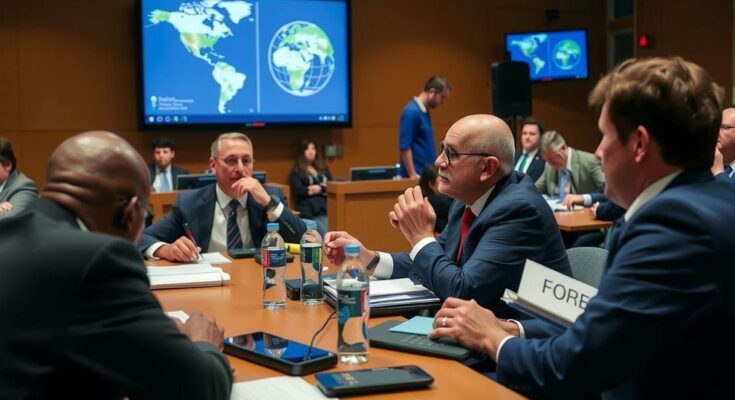During COP29 in Baku, Azerbaijan, negotiators reached a contentious climate finance deal, pledging $300 billion annually from wealthy nations to developing countries. The agreement, announced by COP president Mukhtar Babayev, faced immediate backlash from several nations, including India and Cuba, who deemed the financial commitment insufficient. This outcome highlighted ongoing tensions in climate negotiations as the world confronts climate change challenges.
In Baku, Azerbaijan, intense negotiations concluded with the approval of a contentious climate finance agreement after prolonged discussions fraught with tension. Following a week of deliberations, COP president Mukhtar Babayev announced the adoption of the deal at 3:00 AM, noting a pledge from wealthy nations to provide $300 billion annually to developing countries adversely affected by climate change. However, this agreement sparked immediate backlash from several nations, including India and Cuba, who expressed outrage at the perceived inadequacy of the pledged amount and the method of consensus used to facilitate the resolution.
The recent climate talks in Azerbaijan highlighted the ongoing tensions surrounding international climate finance, particularly as the world braces for what could be the hottest year on record. The discussions occurred in a politically charged atmosphere, with Azerbaijan’s leadership under scrutiny for its domestic policies and the oil-based economy that shapes its stance in climate negotiations. The expectation for substantial commitments from wealthier nations continues to fuel debates about equity and responsibility in addressing climate change, bringing to the forefront criticisms from both developed and developing countries regarding the efficacy and intentions behind recent agreements.
The conclusion of the climate negotiations in Baku reflects significant divisions among nations regarding climate finance, especially in light of the urgent need for greater support for vulnerable countries. The swift adoption of the agreement, followed by vocal dissent, underscores the complexities of achieving consensus in global climate talks. This situation exemplifies the challenges faced in creating equitable solutions to combat climate change, demonstrating that while negotiations can culminate in formal agreements, deep-seated grievances and disparities remain unresolved.
Original Source: www.france24.com




